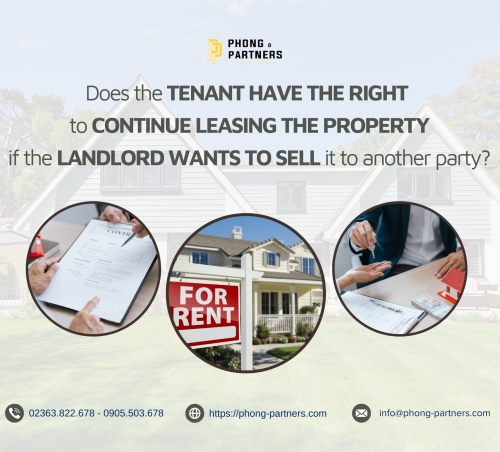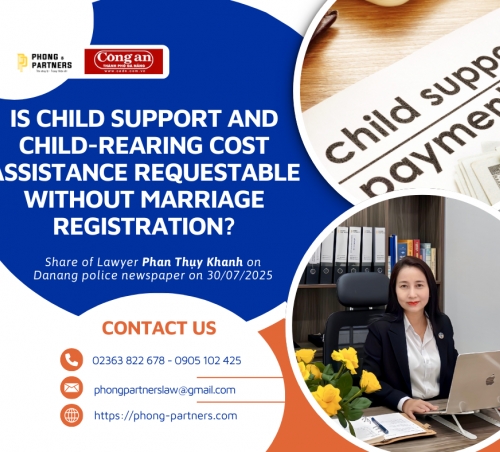*Lawyer Tran Canh Hien from Phong & Partners Law Firm in Ho Chi Minh City provides the following legal advice:
During the process of leasing a house, it is inevitable that issues of damage may arise. Therefore, a common question is: Who is responsible for repairs when a leased house is damaged? To clarify this issue, it is essential to consider both the legal provisions and the agreement between the parties – the specific clauses in the lease agreement that have been signed.
Firstly, the legal provisions regarding repair responsibilities
According to the law, repair responsibilities are determined based on the cause and extent of the damage to the leased house. Article 477 of the Civil Code 2015 stipulates:
"Article 477. Obligation to ensure the usability of leased property
1. The lessor must ensure that the leased property remains in the condition agreed upon and suitable for its intended purpose throughout the lease term. They must repair any damage or defects of the leased property, except for trivial damages that according to customary practice, the lessee must repair.
2. If the leased property’s usability is impaired through no fault of the lessee, the lessee has the right to request that the lessor take one or more of the following measures:
a) Repairing the property;
b) Reducing the rental price;
c) Replacing the property with another, or unilaterally terminate the contract and request compensation for damages, if the leased property has defects that the lessee was unaware of or if it is irreparable, thereby preventing the fulfillment of the lease’s purpose.
3. If the lessor has been notified but fails to repair or delays repairs, the lessee has the right to undertake repairs on the leased property at a reasonable cost, but must inform the lessor and may request reimbursement for the repair expenses."
Accordingly, the landlord (lessor) is responsible for ensuring the leased house is suitable for its intended use. If the leased house suffers significant damage related to its structure and primary systems, such as roof leaks, foundation subsidence, cracked walls; or damage to the electrical or plumbing systems; damage to structural components of the house like stairs, main doors, etc., these issues typically fall under the landlord's responsibility. Such damages are often beyond the lessee's control and may severely affect the leased house's value and safety.
For minor damages that frequently occur during usage, such as broken locks, light bulbs, faucets, etc., these generally fall under the lessee's responsibility. These types of damages typically arise from the lessee’s use and the ordinary wear and tear of the equipment, meaning the lessee should repair them to ensure their intended use.
Secondly, the importance of the house lease
Leasing a house is a transaction between the landlord (lessor) and the tenant (lessee) for a specific period, without changing the entity that has the right to control the leased house. Therefore, the responsibility for repairs generally falls to the lessor.
However, the lessee and the lessor should explicitly define their respective responsibilities in the lease agreement to clarify who is responsible for repairing the leased house in case of damage. This can help avoid disputes regarding the severity of the damage, as there are currently no official regulations categorizing damage as major or minor, instead, itlargely relies on subjective interpretation and customary practices. This is the key to maintaining a good relationship and protecting the interests of both parties. The clauses are often stipulated on:
- What types of damage that fall under the responsibility of the lessee and the lessor;
- The procedures for handling damage and the repair timeline;
- The regulations concerning repair costs and how these costs are allocated.
As analyzed above, in Mr. Minh's situation, based on the cause and extent of the damage, it can be seen that repairing the electrical system is primarily the landlord's responsibility (lessor). However, since the lease agreement does not specify repair obligations during the tenancy, Mr. Minh should notify the landlord in advance, requesting that the electrical system be repaired within a reasonable timeframe. Furthermore, Mr. Minh should inform the landlord that if the repair is not carried out, he will either repair it himself or hire a repair service, with costs having been notified in advance. After that, Mr. Minh should also retain all receipts and documents related to the repair expenses as evidence to support a future request for reimbursement from the landlord.
Disputes in the house lease agreements are common, particularly concerning the responsibility for repairs, as many contracts lack explicit provisions. As a result, parties may struggle to resolve disputes due to insufficient grounds. Mr. Minh’s case highlights the importance of clearly outlining the rights and obligations of both parties in the lease agreement to minimize the potential for conflicts and provide a solid legal foundation for addressing such issues.















